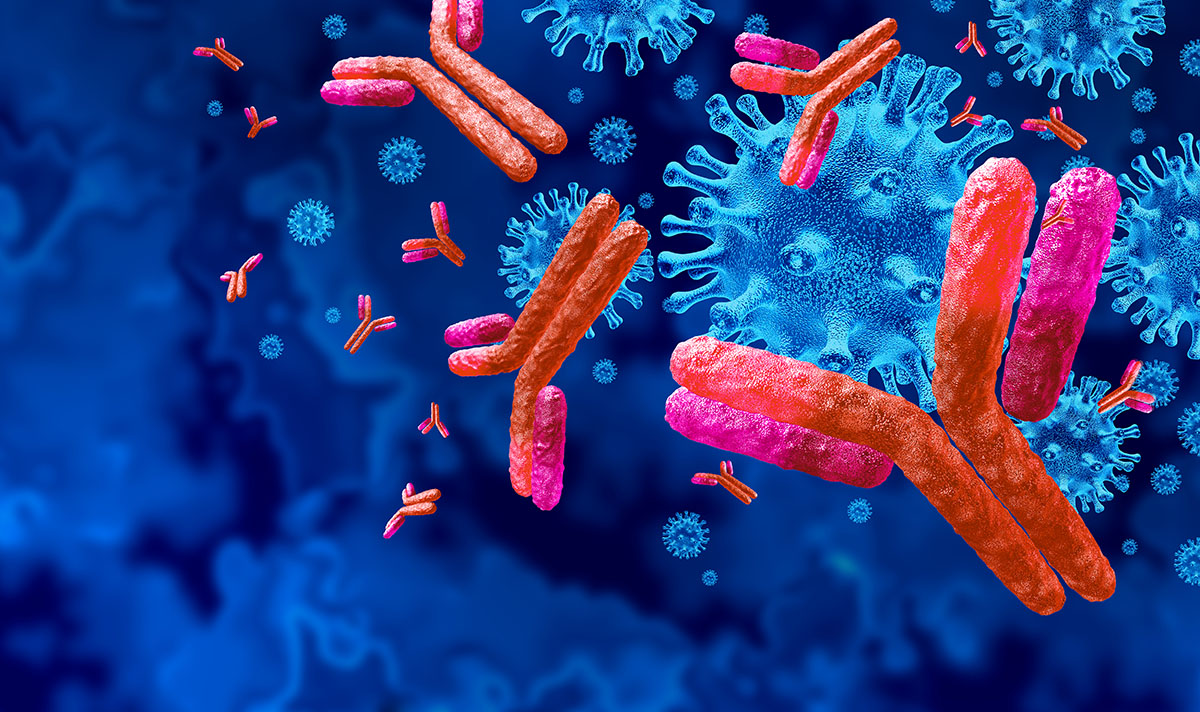Type 1 diabetes (T1D) is an autoimmune disease that is associated with selective destruction of insulin-producing pancreatic islet b-cells. Islet-specific autoantibodies can be detected years or even decades before the onset of clinical disease, and destruction of islet cells ‒ predominantly mediated by autoreactive T lymphocytes ‒ also starts during the asymptomatic phase. The rate of progression to full-blown clinical disease depends on multiple factors including age, sex and HLA genotype of the individual.1
This prediabetic, asymptomatic phase, particularly in those more susceptible individuals, represents a potential ‘window’ during which the immune response can be manipulated to prevent or delay b-cell loss.2
In the pathogenesis of T1D, there is an incredibly complex interplay between various components of the innate and adaptive immune systems, and a variety of non-insulin, immune-targeting approaches have been tested, including restoring self‑tolerance to pancreatic b-cell autoantigens.3,4
An immunomodulation approach
CD3 was identified as a component of the T cell receptor in the late 1970s, and subsequent experiments with the anti-CD3 monoclonal antibody (mAb) OKT3 (Ortho Kung T3) showed that it prevented cytotoxic T cell binding to target cells, via disruption of the TCR-MHC interaction.5,6 This mAb went on to be widely used for prevention of acute graft rejection. Later, anti-CD3 mAbs were found to induce regulatory T cells (Tregs) and support maintenance of tolerance in graft recipients.7
The early anti-CD3 treatment was not without its problems, however; specifically, a potentially fatal cytokine-release syndrome. This acute systemic inflammatory response was associated with the mitogenic activity of anti-CD3 and release of proinflammatory cytokines including TNF-α. This was dependent on binding of the Fc portion of the anti-CD3 mAb, in an antigen-non-specific manner, to monocyte/macrophage FcgR.8 A mitigation strategy for this toxicity was to engineer FcR non-binding anti-CD3 mAbs.9
Observation of the immunosuppressive properties of anti-CD3 mAbs in transplantation tolerance led to research into potential utility of this treatment approach in autoimmune diseases, including in diabetes. Murine studies in the mid-1990s demonstrated prevention of onset as well as durable remission of established diabetes with an anti-CD3 approach,10 and subsequent human studies have shown improved metabolic control, preservation of C-peptide (a marker of residual b-cell function) levels, and, significantly, delayed progression to clinical disease.11
Immune pathways targeted by anti-CD3
The early studies with anti-CD3 mAbs showed disruption of the TCR-MHC interaction, and indeed disappearance of the CD3/TCR from the cell surface, inhibiting pathogenic T cells’ ability to recognize the B-cell antigens. Induction of T cell anergy and apoptosis through anti-CD3 mAb-induced signalling can also occur via the CD3/TCR complex. A longer-lasting effect of an anti-CD3 approach is the induction of tolerance, and release of TGF-b by macrophages during phagocytosis of apoptotic pathogenic T cells is an important trigger. TGF-b can induce expansion of regulatory T cells as well as promote a more tolerogenic phenotype of antigen-presenting cells.12,13
Why is an immune-targeting approach appealing?
In T1D, a delay in progression to clinical disease is of considerable clinical importance given the challenges of daily management of the condition and long-term complications.14 The worldwide prevalence of T1D in 2021 was approximately 8.4 million, predicted to increase to 13.5–17.4 million by 2040, with the disease burden expected to worsen.15 Immune-targeting agents that delay the onset of T1D ‒ even by a few years ‒ could have a considerable impact on this projected worsening, not to mention improving the lives of individuals with T1D: “And this matters ‒ each day without type 1 diabetes counts.”14 It also begs the question of whether enhanced screening for T1D, especially in high-risk individuals, should now be a priority for health systems.16
Another question extends the discussion beyond diabetes ‒ would this approach work in other autoimmune diseases? Anti-CD3 mAbs have been trialed in inflammatory bowel disease and multiple sclerosis,13 so there is undoubtedly more to uncover for this approach.
References
- Ziegler AG, et al. Seroconversion to multiple islet autoantibodies and risk of progression to diabetes in children. JAMA. 2013;309:2473-2479.
- Ilonen J, et al. The heterogeneous pathogenesis of type 1 diabetes mellitus. Nat Rev Endocrinol. 2019;15(11):635-650.
- Erdem N, et al. Breaking and restoring immune tolerance to pancreatic beta-cells in type 1 diabetes. Curr Opin Endocrinol Diabetes Obes. 2021;28:397-403.
- https://www.fda.gov/news-events/press-announcements/fda-approves-first-drug-can-delay-onset-type-1-diabetes (Accessed November 2022).
- Reinherz EL, et al. A monoclonal antibody blocking human T cell function. Eur J Immunol. 1980;10:758-762.
- Gaglia J, Kissler S. Anti-CD3 Antibody for the Prevention of Type 1 Diabetes: A Story of Perseverance. Biochemistry. 2019;58:4107-4111.
- Waldmann H, Cobbold S. Regulating the immune response to transplants. a role for CD4+ regulatory cells? Immunity. 2001;14(4):399-406.
- Vossen AC, et al. Fc receptor binding of anti-CD3 monoclonal antibodies is not essential for immunosuppression, but triggers cytokine-related side effects. Eur J Immunol. 1995;25:1492-1496.
- Woodle ES, et al. Phase I trial of a humanized, Fc receptor nonbinding OKT3 antibody, huOKT3gamma1(Ala-Ala) in the treatment of acute renal allograft rejection. Transplantation. 1999;68:608-616.
- Chatenoud L, et al. Anti-CD3 antibody induces long-term remission of overt autoimmunity in nonobese diabetic mice. Proc Natl Acad Sci USA. 1994;91(1):123-127.
- Herold KC, et al; Type 1 Diabetes TrialNet Study Group. An Anti-CD3 Antibody, Teplizumab, in Relatives at Risk for Type 1 Diabetes. N Engl J Med. 2019;381:603-613. Erratum in: N Engl J Med. 2020;382(6):586.
- Chatenoud L. Immune therapy for type 1 diabetes mellitus-what is unique about anti-CD3 antibodies? Nat Rev Endocrinol. 2010;6(3):149-157.
- Kuhn C, Weiner HL. Therapeutic anti-CD3 monoclonal antibodies: from bench to bedside. Immunotherapy. 2016;8:889-906.
- https://www.diabetes.org.uk/about_us/news/first-treatment-delay-type-1-diabetes-teplizumab-licensed-us (Accessed November 2022).
- Gregory GA, et al; International Diabetes Federation Diabetes Atlas Type 1 Diabetes in Adults Special Interest Group, Magliano DJ, Maniam J, Orchard TJ, Rai P, Ogle GD. Global incidence, prevalence, and mortality of type 1 diabetes in 2021 with projection to 2040: a modelling study. Lancet Diabetes Endocrinol. 2022;10:741-760.
- Besser REJ, et al. General population screening for childhood type 1 diabetes: is it time for a UK strategy? Arch Dis Child. 2022;107:790-795.





